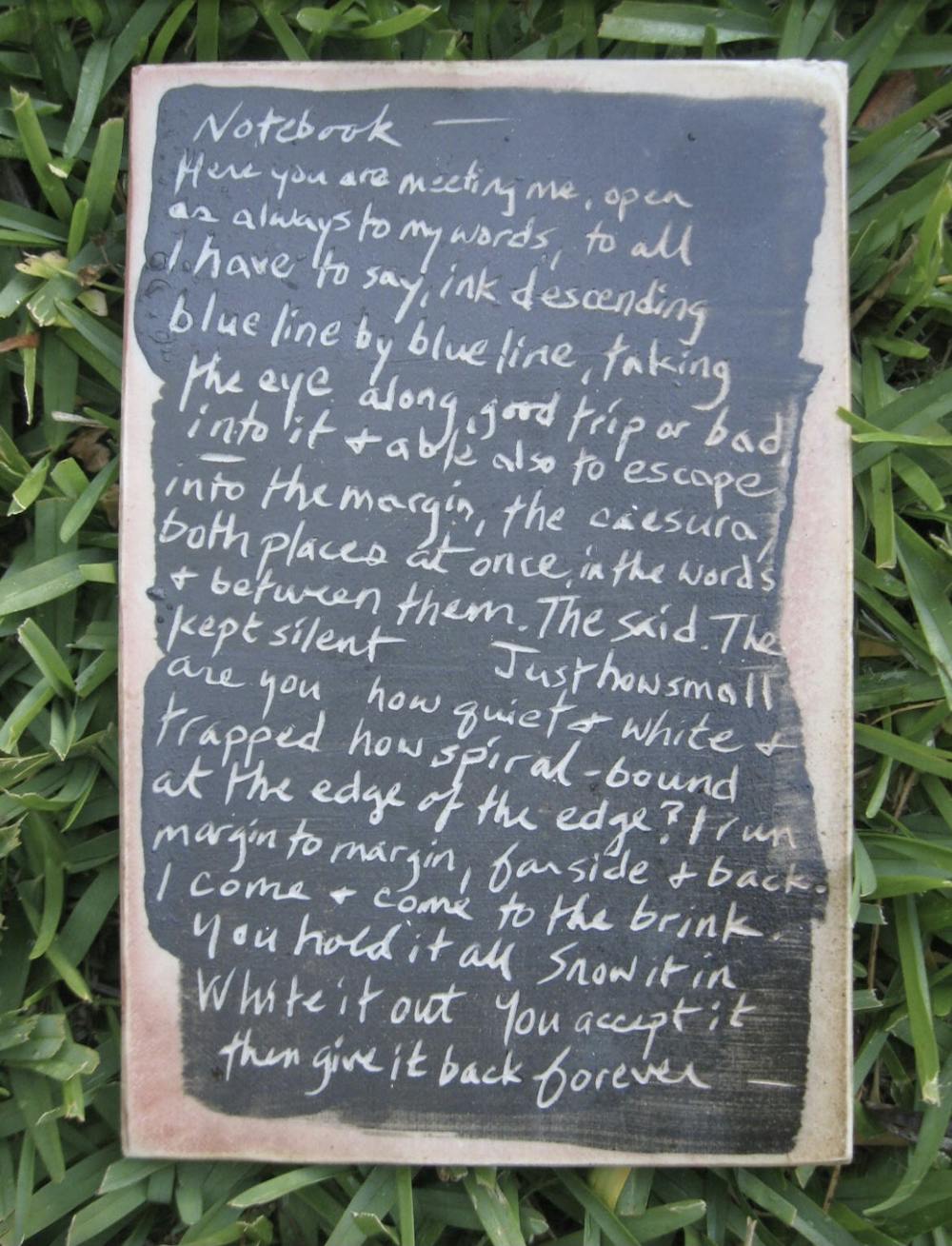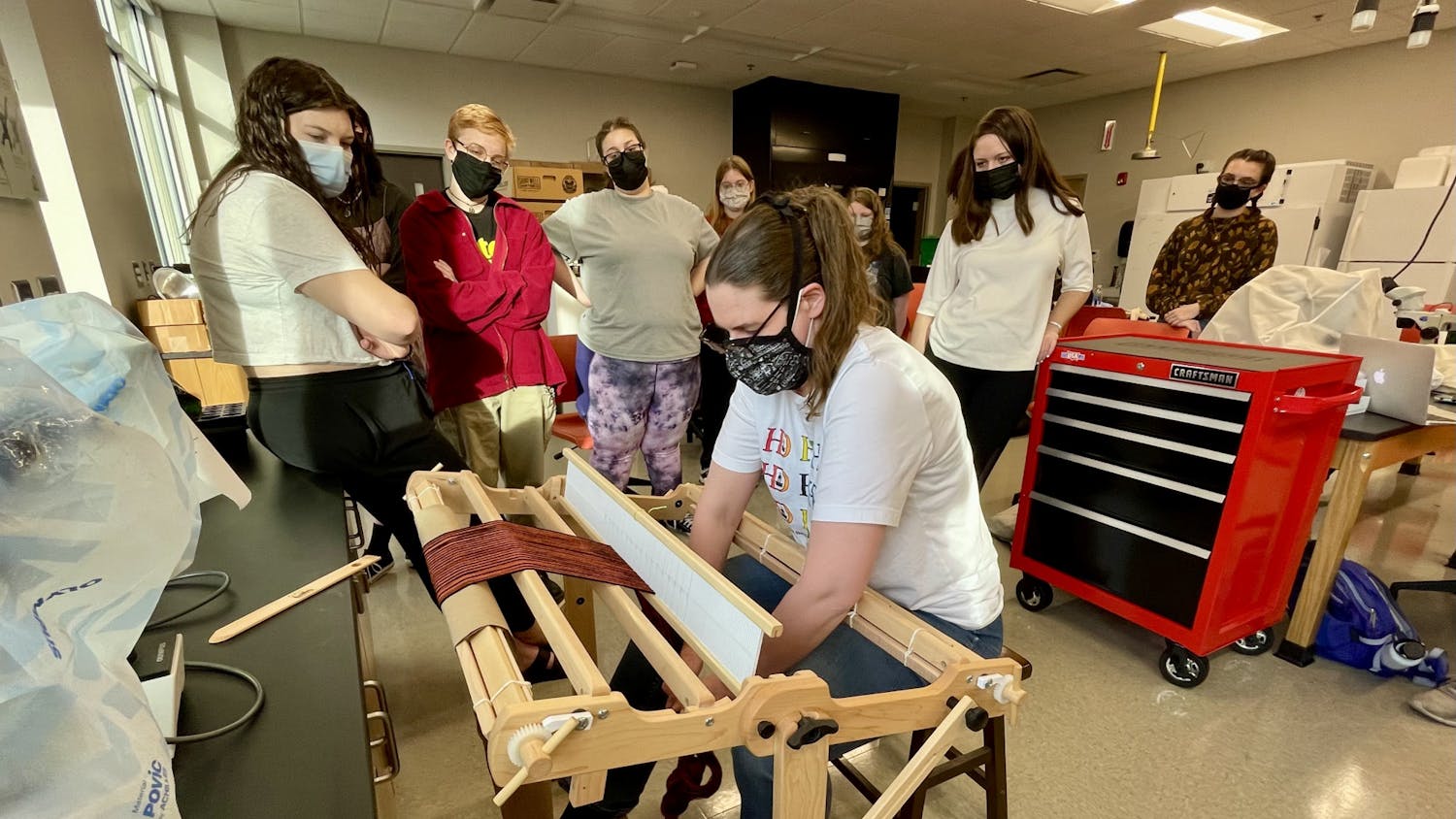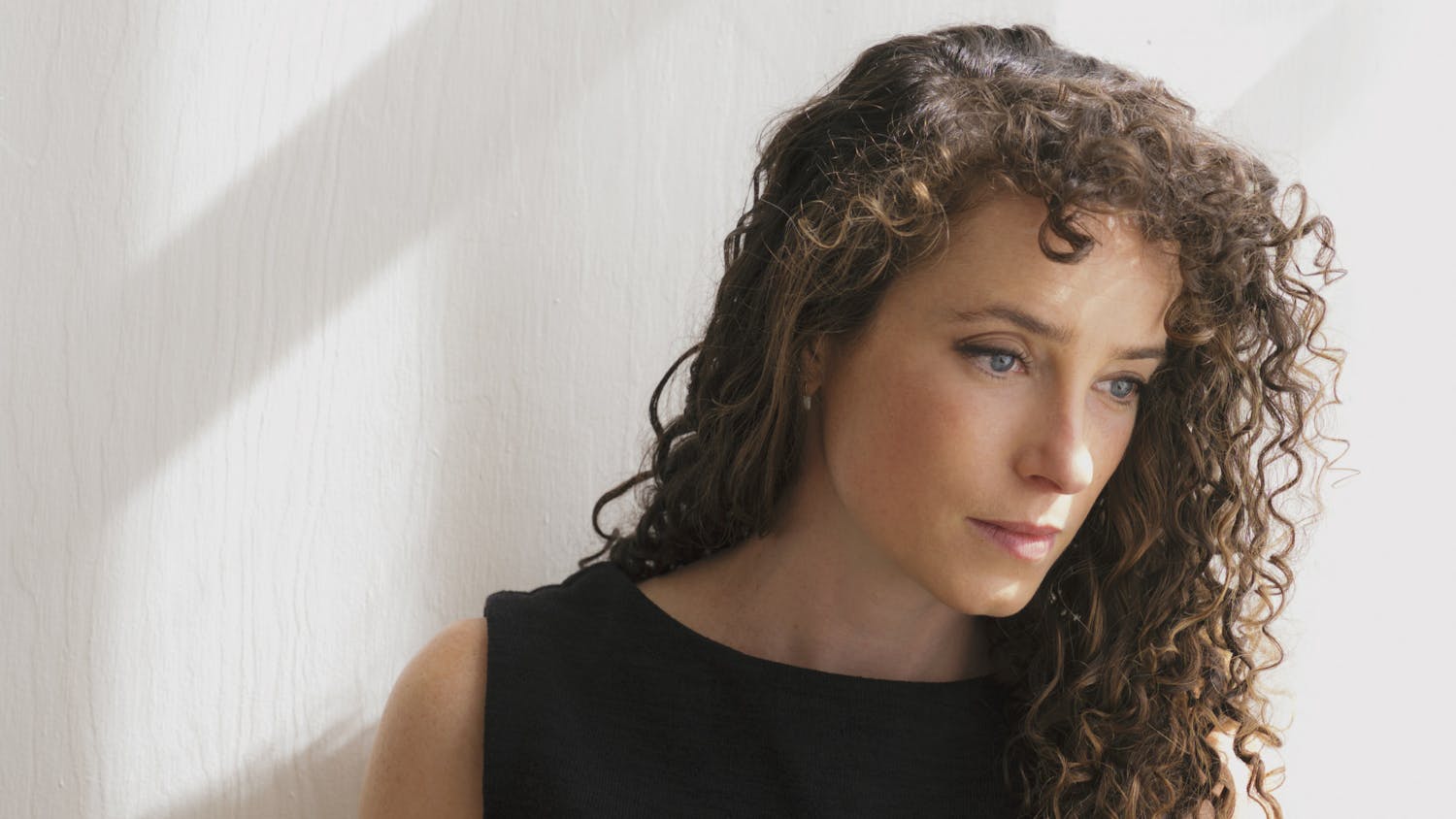Mercer’s artists aren’t just limited to their student body, but also include many of the professors across campus. Gordon Johnston, a professor of creative writing, has released two books the past year and is in the process of writing several more.
Johnston’s primary artistic medium is writing, specifically poetry. He originally published a poetry book, “Scaring the Bear,” and a chapbook, “Durable Goods,” this past year, which are currently available through Mercer University Press and Finishing Line Press.
Johnston also writes fiction and nonfiction, was in a band with other faculty and works with "clay pages,” clay tablets that he writes poems on before entering the kiln.
Johnston began writing poems on the clay pages as an accident after collaborating with now-retired Mercer professor Roger Jamison. Johnston had been teaching a capstone course called "Art Society," including a unit on wood-fired pottery.
During that course, Jamison came in to show some of his work and was building a kiln at the same time. Johnston, who’d been reading about them, was interested in the kiln and began helping to see the process of firing. Jamison insisted on trying to repay Johnston for his help and the two eventually agreed that Johnston would take the clay pages.
Johnston said that the clay pages were different from his usual process of writing poetry. He drafted the poems directly onto the tablet, which isn’t something that he does for poems he intends to traditionally publish.
Not every poem survives the firing process because of how hot the fire can be.
“So occasionally, it’s like the kiln is rejecting my work, you know," Johnston said. "I put these poems in there and then they come out and a tablet will sometimes be just blank, which is okay. It’s kinda cool to not know what you’re gonna get, to always have that element of surprise."
He began writing poetry back in high school but said it was “wretched, and none of it impresses very much now.” When he started college, however, he began reading great poets like Robert Frost who ignited an interest in writing poetry.
"It seemed to me that the writing that took place in a poem was the most high-voltage language you could get to," Johnston said. "There was no wasted energy, there was no wasted word. Even the white space in the poem was loaded, even the space between stanzas was incredibly loaded, and so I wanted to write that."
He continued reading and writing poetry through grad school and began sending it off to try to get published.
“I want to participate in the life of art, and words seemed to be the thing that I was skilled enough to participate with,” said Johnston.
Writing has also proven to be a way for him to deal with life and exert some control over it.
“Life just throws all these wonders and joys and tragedies at you from hour to hour and from day to day and poetry is my way of dealing with some of that stuff,” Johnston said. “We’re not in control of what happens to us, but when you sit down to work at a painting, when you sit down to shape a pot, when you sit down to write a song, when you sit down and write a poem or a short story, you make a little world.”
The idea of writing more to learn has been a big influence in his writing, along with the natural world. Johnston enjoys going out into nature and kayaks and canoes, which has given him the opportunity of going on those trips to find inspiration in nature. He said that he couldn’t imagine having been able to go on those trips without writing about them afterward.
Similarly, nature has been a big theme in his writing, specifically about people in the landscape. He doesn’t intentionally incorporate themes into his work, but said that they unconsciously work their way in. In his work, there are lots of friendships outside and in wild landscapes, people talking or meeting at rivers or mountains and religious influences.
“Religion so often these days is all about what you reject rather than about a broad reverence that is widely accepting," he said. "I have a lot of reverence for science and there are strains of religious thought now that won’t allow that (...) sometimes in the poems, I think I’m trying to work out my own sort of spiritual view on things."
Johnston said that the creative community at Mercer was a huge help and influence.
Roger Jamison was a role model to him, along with Anya Silver, who passed away in 2018, who Johnston said is still dearly missed. He also mentioned Eric O’Dell, Charlie Thomas, Monty Cole, Carolyn Yackel and Ginger Young as great examples of the artistic community at Mercer.
“All these different folks who are engaged in some kind of artistic creation or other, it’s a great thing to be a part of a community,” Johnston said.
Johnston recently finished a short story collection. He’s also writing a nonfiction book about a backpacking trip that he did a few years ago, and says he has more in store for the future.





